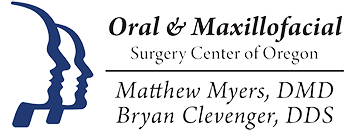Suite Of
Oral & Maxillofacial Surgical Services
Dental Procedures
Delivering a full spectrum of oral and maxillofacial procedures, our team combines advanced technology with compassionate, professional care to enhance patient outcomes. The Oral and Maxillofacial Surgery Center of Oregon, situated in Medford, OR, specializes in everything from dental implants and wisdom teeth removal to corrective jaw surgery and bone grafting. Our commitment to excellence reinforces our reputation as a well-established leader in oral health solutions.
Are You a Referring Doctor?


Our Prominent Services
Impacted Canines
Impacted canines are a dental condition where upper eye teeth do not properly emerge, often becoming stuck in the jaw or gums. Critical for a proper bite and possessing the longest roots of human teeth, these canines guide the rest of the teeth into alignment when closing the jaw. Orthodontic and surgical intervention is essential, especially if it is not resolved by early adulthood. Successful treatment can involve braces to open space for eruption and surgical exposure of the tooth, followed by guided orthodontic traction. Early detection and management are key to avoiding complications associated with impacted canines and ensuring dental functionality and health.
Cleft Lip & Palate
Cleft Lip
A cleft lip is a congenital facial malformation occurring when the lip’s tissues do not fully fuse in the womb, leaving a gap. Affected children may have difficulty with sucking and speech and may exhibit a split in the lip extending to the nose. Treatment often involves surgery for functional and aesthetic restoration.
Cleft Palate
A cleft palate is a congenital condition where the palate, or roof of the mouth, doesn’t close entirely, leaving an opening that can affect speech, eating, and airflow. Repairing this gap typically involves surgery between 7 and 18 months of age to restore palate function and prevent complications.
Facial Trauma
Facial trauma encompasses a range of injuries to the face, which can deeply affect both physical appearance and emotional well-being. Oral and maxillofacial surgeons are well-versed in emergency care, acute treatment, long-term reconstruction, and rehabilitation for such injuries. They treat conditions such as facial and intraoral lacerations, avulsed teeth, and fractured jaws, with a focus on minimal aesthetic impact. Treatment may require suturing, facial bone stabilization using techniques like wiring jaws or rigid fixation with plates and screws. Our specialists aim to restore function while preserving the patient’s facial appearance through carefully planned and executed procedures.
Jaw Surgery
Orthognathic surgery, also known as corrective jaw surgery, addresses and resolves conditions where the jaws and teeth do not meet correctly, affecting both function and facial aesthetics. This surgical procedure is recommended for individuals experiencing an improper bite or misalignment of the jaw due to uneven growth, congenital abnormalities, injury, or other issues impacting chewing, speech, and long-term oral health. The process involves a collaborative approach between oral surgeons, dentists, and orthodontists to ensure a cohesive and comprehensive treatment plan. With the aid of advanced technology, our surgeons can utilize three-dimensional models and imaging to plan the surgery precisely, offering patients a clear understanding of the procedure and expected outcomes. This meticulous preparation aims to enhance facial symmetry, ensure teeth function properly, and improve the patient’s overall quality of life by addressing both aesthetic concerns and functional impairments.
Have a question?
PRP
Platelet-rich plasma (PRP) is a blood by-product rich in platelets, enhancing the body’s healing process. Previously limited to hospitals due to high costs and blood requirements, new technology now allows for PRP production from just 55 cc of blood during outpatient procedures. PRP accelerates healing by releasing growth factors that stimulate tissue regeneration. It is significant for dental surgery, particularly for implant placement and bone grafting, by promoting bone formation more predictably and quickly. PRP offers numerous advantages, including safety, convenience, faster healing, cost-effectiveness, and ease of use, making it a valuable tool in dental and surgical procedures.
Oral Pathology
The mucosa, a smooth, coral-pink skin, lines the inside of the mouth. Any changes in its appearance can signal a potential pathological problem or oral cancer. Early signs may include reddish patches (erythroplasia), whitish patches (leukoplakia), sores that don’t heal and bleed, lumps or thickening of the mucosa, chronic sore throat, hoarseness, and difficulty chewing or swallowing. These symptoms can appear on the lips, cheeks, gums, palate, or neck. Notably, oral cancer might not always cause pain. It’s crucial to conduct monthly self-examination of your mouth.
Complete your doctor referral forms or patient registration forms and connect with us at 541-779-7799.

